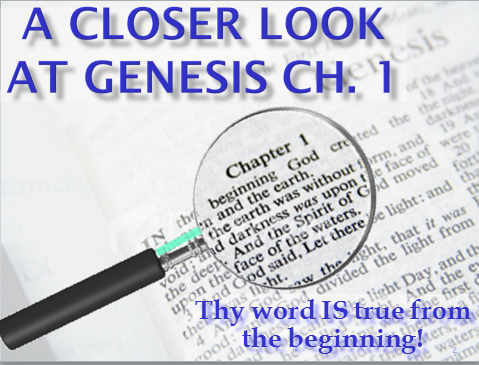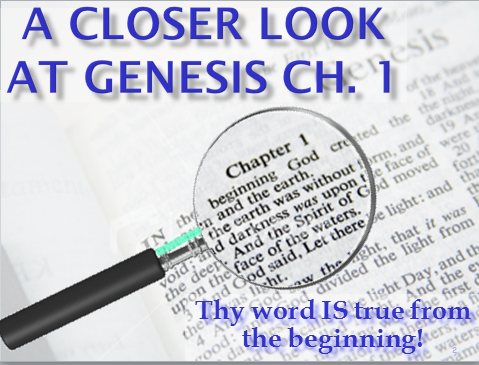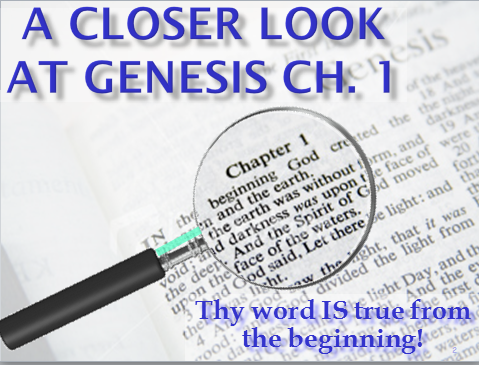Over the next few weeks, we will be serialising a paper by Bro B.Burt (Cov West) for those who did not see it when it was first published.
We will reproduce this in short ‘snippets’ to make it easier to digest and comment upon should you wish to do so.
CONFLICTING VIEWS
In response to the question “Who wrote the Book of Genesis?” the average Christadelphian would probably reply “Moses”. This view is of course firmly held by the Jews, the primary meaning of the word ‘Torah’ being the first five books of the Bible, the contents of which, they believe, were given to Moses by God, either at Mt. Sinai or in the Tabernacle.
In 1878 the German theologian Dr Julius Wellhausen published his ‘Documentary Hypothesis’ in which he argued that the material in the first six books of the Bible was originally written between 950BC and 500BC (time of Solomon to the Babylonian captivity) by four different authors (the Yahwist, the Elohist, the Deuteronomist and the Priestly source) and that their writings were subsequently combined and revised by editors with a final editor or redactor (thought to be Ezra) being responsible for the completion of the books. Wellhausen’s Higher Critical views have been challenged in recent years, but only in the direction of more source documents (the fragmentary theory) and more editors. Critics of the Bible are in favour of these theories because they underpin the basic (humanistic) assumption that the religion of the Hebrews evolved over the centuries, changing from original animism through Babylonian & Egyptian type polytheism into Jewish monotheism. We would, of course utterly reject such a view, believing that the Genesis record was “wholly given by inspiration of God in the writer(s)” – BASF Foundation Clause.

This article will show that actually the considerable labours of the Higher Critics are not without profit, providing we firmly reject their conclusions and seek Biblical solutions to the question of the authorship of Genesis – solutions which are in harmony with our belief in the verbal inspiration of the text and of the way in which that text is quoted and commented upon by Jesus and his apostles in the New Testament.
THE TEXT OF THE GENESIS RECORD
The creation record in Gen.1v1 – 2v4 (in which God is referred to asElohim) is significantly different to that in 2v5-24 (in which God is called Yahweh Elohim) – to the point where some critics have (wrongly) suggested that the two accounts contradict each other. The history of the line of Cain in Gen.4 stops with the record of the sons of Lamech who lived some time before the flood. Why are we not told about subsequent generations and their doings? The record of the flood in Gen.6-7 contains a number of apparently duplicated statements – why should this be if the record was penned by a single author? The first eleven chapters of Genesis contain a number of Babylonian words and the last fourteen chapters feature Egyptian words1 why the difference between the beginning and the end of the book?

It also needs to be noted that although there are in the later books of the Bible quotations from the books of Exodus, Leviticus, and Deuteronomy which are attributed to Moses (Mk.7v10 quotes Ex.20v12; Jn.8v5 quotes Lev.20v10; Acts 3v22 quotes Deut.18v15/19); there are no such attributions to any quotation from Genesis. In other words, there is no place where Genesis is quoted with the addition of the words ‘Moses wrote’.
1 Clues to Creation in Genesis, P J Wiseman, p.103
THE DIVISIONS OF THE BOOK
An obvious feature of the book of Genesis is the repeated phrase “these are the generations of”. These occur as follows:
| Ref | Section |
| 2v4 | These are the generations of the heavens & the earth |
| 5v1 | This is the book of the generations of Adam |
| 6v9 | These are the generations of Noah |
| 10v1 | These are the generations of the sons of Noah |
| 11v10 | These are the generations of Shem |
| 11v27 | These are the generations of Terah |
| 25v12 | These are the generations of Ishmael |
| 25v19 | These are the generations of Isaac |
| 36v1 | These are the generations of Esau |
| 36v9 | These are the generations of Esau |
| 37v2 | These are the generations of Jacob |
Biblical scholars have historically taken this phrase to mark the introduction of a new section of the book, relating to the descendants of the person named in the phrase. Because scholars are convinced that it is a commencement phrase, James Moffatt in his translation actually moves Gen.2v4a back to before ch.1v1! But when Genesis is examined carefully it will be seen that the phrase actually marks the conclusion of a section. Ch.2v4 clearly does refer back to the section 1v1 to 2v3. All the details we have about Adam, apart from his age at the birth of Seth & his age at death (5v3-5) precede Ch.5v1.

Ch.5v1 actually refers to “the book of the generations of Adam”. The Hebrew word is the normal word for “book” as used, for example in Nahum 1v1 “The book of the vision of Nahum the Elkoshite”. Adam (who was a prophet – compare Gen.2v23-24 “Adam said” with Mt.19v5 “[God] said”) could have written all of Gen.4 – he died during the lifetime of Jabal, Jubal & Tubal-Cain, so he would have known them but not their children. Gen.4v3 say that “Cain brought of the fruit of the ground…” – brought to whom? His father, standing at the altar? So throughout the book of Genesis, the person named in the phrase “these are the generations of…” would have known / experienced the events in the narrative previous to the phrase which contains his name.
EARLY WRITING
But did those early prophets write? It has already been suggested above that Adam wrote at least Gen.4. To this can now be added two other lines of evidence. The first is that within the book of Genesis there are evidences of contemporary writing. Gen.10v19 “And the border of the Canaanites was from Sidon…as thou goest, unto Sodom, and Gomorrah, and Admah, and Zeboim, even unto Lasha”. Yet after the events of Gen.19 one could not “go” to Sodom, Gomorrah, Admah or Zeboim at all – they had been overthrown in the fiery destruction of the cities of the plain.
Thus Gen.10v19 – and probably the rest of Gen.10, must have been written before the destruction of Sodom. Gen.14 records the battle between the Babylonian kings, headed by Chedorlaomer & the local kings in the land, including the kings of the four cities mentioned above. v.3 states “All these were joined together in the vale of Siddim, which is the salt sea”. Clearly, after the destruction of Sodom the site of the battle was inundated – but Gen.14v3 describes it as a dry valley. Further comment will be made on the structure of this verse later.
The second line of evidence for contemporary written Scriptures in the time of the Patriarchs is found in the New Testament. Gal.3v8 “The scripture (Gr. graphe = writing), foreseeing that God would justify the heathen through faith, preached before the gospel unto Abraham, saying, In thee shall all nations be blessed”. This passage shows that Abraham had at least Gen.12v1-3 as a written Scripture in his lifetime. Similarly Jas.2v23 & Romans 4v23 show that Abraham also had Gen.15v6 in writing before the time of the sacrifice of Isaac – else how could he “fulfil” this “Scripture”?
EARLY PROPHETS
It has already been suggested that Adam was a prophet, the first of a sequence of prophets who appear throughout the book of Genesis. Jesus in Lk.11v51 informs us that Abel was a prophet – although not one word spoken by him is recorded in Scripture! Jude v.14 tells us that Enoch was a prophet & v.14-15 detail his prophecy.
Lamech (Gen.5v29) named his son prophetically and Noah spoke prophetically of the future for his sons in Gen.9v25-27. God, in Gen.20v7, told Abimelech that Abraham was a prophet; Ps.105v15 adds Sarah to the list – a prophecy of hers being recorded in Gen.21v10 – and confirmed to be an oracle in Gal.4v30.

Isaac prophetically blessed Esau & Jacob in Gen.27 & 28 and Jacob did so to his sons in Gen.49. The book of Genesis closes with the prophecy of Joseph in ch.50v24-25. So, throughout the time span of the book of Genesis there was always at least one prophet alive on the earth, God did not leave himself without witness in those early days[1].
[1] See “For the Study & Defence of the Holy Scripture” by Bro Edward Whittaker: p.22-23 for further details on this point.
THE INSPIRED EDITOR
The evidence within the book of Genesis points to the fact that the so called Higher Critics were right in their conclusion that Genesis consists of a series of manuscripts, written by different authors, brought together & completed by an editor. The writer remembers bro Edward Whittaker saying “The Higher Critics have done the hack work for us – but don’t follow their conclusions!”
There are clear evidences of ‘editorship’ within the text of Genesis. Gen.14v3 has already been commented upon above. It is one of several verses within the chapter where additional geographical details have been added, viz.:
| Ref | Addition |
| v.2 | Which is Zoar |
| v.3 | Which is the salt sea |
| v.6 | Which is by the wilderness |
| v.7 | Which is Kedesh |
| v.8 | The same is Zoar |

Bela was renamed Zoar by Lot in Gen.19v22 after he had fled there from Sodom. The Vale of Siddim became the Salt Sea after the overthrow of Sodom – Gen.19. En-mishpat was presumably named Kadesh (holy) by the Children of Israel when they camped there – Num.13. Yet in all of these additions, there is no hint of who might have made them. However in Gen.50 there are two more geographical additions which are more revealing. “And they came to the threshingfloor of Atad, which is beyond Jordan…wherefore the name of it was called Abel-mizraim, which is beyond Jordan” (Gen.50v10-11). Atad was on the direct route from Egypt to Hebron (see Ex.13v17). It is believed to have been on the border between Egypt and Canaan and therefore was an appropriate place for the party to stop and mourn. But it is described in the verses cited above as being “beyond Jordan” – this is the viewpoint of the compiler of the book of Genesis, dwelling at that time in a tent “in the plains of Moab by Jordan near Jericho” (Num.35v1) where Moses finished writing the words of the Law and formally delivered them to the Levites (Dt.31v24-26).
Thus, there is a sense in which the traditional view that ‘Moses wrote Genesis’ is correct but the fullness of the matter is that Moses took the Scriptures (Ga.3v8 & Jas.2v23) which the children of Israel had brought out of Egypt (the “Testimony” of Ex.16v34!) and bought them together into the book of Genesis which we have today, adding by the Spirit such details as he was directed to do[1].
[1] There is one detail in Genesis which the author is aware of which does not fit with the concept of Moses being the final ‘editor’ of the Genesis manuscript – Gen.14v14 refers to Abram reaching “Dan”. This must have been an even later inspired geographical update – possibly by Samuel?
A RELIABLE RECORD
Thus the book of Genesis is no different from all other parts of the Word of God. It was written by men, inspired of God, who lived at the time of the events which they recorded. These things were indeed written for our learning, but they were also written for the spiritual benefit of those who lived through those times (Rom.4v23-24), who had witness born to them in contemporary Scriptures concerning the purpose of God with them and in their lives.
This view of the book of Genesis is highly significant in the context of current discussions on the origins of the heavens, the earth and life upon it. It argues that the Genesis record is a factual account, written by contemporary prophets of the events which happened in their times. Thus, for example, the record of the Flood in the Bible is the original account, written down at the time by those who were in the ark. The Babylonian account (The Gilgamish Epic) came later, it borrowed details from the Genesis account and its author invented others. Thus the ark of Gen.6 is 300 cubits long, 50 wide & 30 high. These figures have been demonstrated to be the correct proportions for a very stable vessel. The ark of Uta-Napishtim (the Babylonian Noah) is a cube of side 120 cubits – unlikely to give its occupants a smooth voyage in a rough sea!

It is not without significance that the Lord Jesus Christ and his apostles take the Genesis record very literally in their references to it and quotations from it[1]. There is a great weight of confirmatory quotations in the New Testament from the first three chapters of Genesis and a similar number of quotations from chapters 4-11 – in fact two thirds of the NT quotes are from the first eleven chapters of Genesis.
We can rely on this record, we can trust this record, it is the Word of the living creator God, written for our learning, that we, through patience and comfort of the Scriptures might have hope.
Bernard Burt
[1] See “A book in which Jesus and his apostles believed”, The Testimony May-June 2013 p.236
[1] There is one detail in Genesis which the author is aware of which does not fit with the concept of Moses being the final ‘editor’ of the Genesis manuscript – Gen.14v14 refers to Abram reaching “Dan”. This must have been an even later inspired geographical update – possibly by Samuel? [1] See “A book in which Jesus and his apostles believed”, The Testimony May-June 2013 p.236

